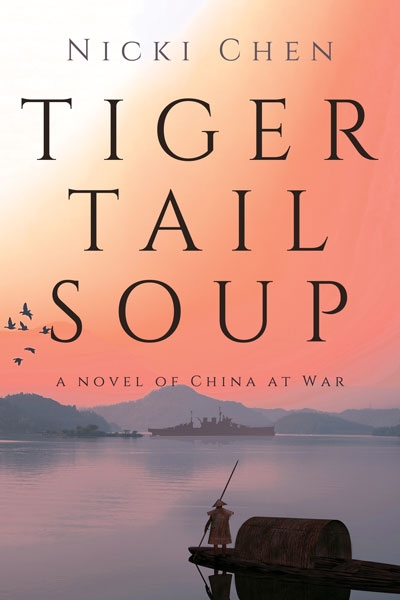Seventy-seven years ago today the Japanese attacked Pearl Harbor. A day later the United States declared war on Japan.
By then, my future husband and his family in China were already in the middle of a Japanese invasion and occupation.
Six months after the Declaration of War, on his 18th birthday, George HW Bush enlisted in the US Navy.
On December 21, 1942, my dad joined the US Army.
The whole world was at war.
It’s hard to imagine what that was like. But I think it’s worthwhile remembering those day. So on this anniversary of the attack on Pearl Harbor I’m rerunning a post from 2014.
***********************************************
Pearl Harbor Wasn’t the Only Target on Dec. 7, 1941
For most of my life, I thought the only country the Japanese attacked on December 7, 1941, was my own, the United States of America.
In my defense, the surprise attack on Pearl Harbor was an enormous event for the United States. Within the short period of ninety minutes, 2403 Americans were killed and all the battleships in the US Pacific Fleet were either damaged or sunk, along with 3 cruisers, 3 destroyers, a training ship, a minelayer, and 188 airplanes.
A day later, as a result of the attack, we declared war on the Empire of Japan, and at the same time we went from supporting the British clandestinely to active support. On December 11, Germany and Italy declared war on the United States and we reciprocated.
For Americans, everything changed as a result of that attack. We were at war. For me, our entry into World War Two meant that my dad would be in a tent in Italy when I was born.
Our president, Franklin D. Roosevelt, famously declared December 7, 1941, “a date which will live in infamy”. Until I researched the topic for my novel, I assumed he was speaking only of the attack on Pearl Harbor. But in his December 8th speech to Congress, which was carried to the American people on the radio, he also mentioned the Japanese attacks on the Philippines, American Midway, Wake and Guam Islands, British Hong Kong and Malaya.
All those places, with the exception of Midway Island, lie west of the International Date Line, so even though they were attacked at the same time as Pearl Harbor, it was already December 8th there.
In order to take full advantage of the element of surprise, the Japanese struck all these locations at the same time. Besides the countries and islands mentioned in Roosevelt’s speech, the Japanese also attacked Thailand and the International Settlements in China which they’d previously spared, including those in Shanghai, Tientsin, Hankow, and Kulangsu.
You may never have heard of Kulangsu (now known as Gulangyu), but it was the place that interested me because my late husband was born there. Also, it’s the setting for my novel, Tiger Tail Soup.
When the Japanese landed on Kulangsu on December 8, there was no resistance. They already controlled the surrounding territory. Here’s how a missionary, Dr. Theodore V. Oltman, described the action:
At 4 A.M. Monday morning, December 8, 1941 armed Japanese Marines crossed the narrow harbor from Amoy and landed in the International Settlement of Kulangsu. With the aid of Consular police and Formosan interpreters (they) began to round up all American and European Nationals. They proceeded, first to the American and British Consulates and the residences of the Netherlands Indies and Hongkong Shanghai Bank officials where they arrested the foreign staffs at the point of bayonet or pistol end. Before day break a large number of other Americans and Europeans were similarly routed out of their house by armed Marines and Japanese Consular Police, and as the day wore on, all Americans and Europeans except two or three overlooked or exempted for reasons of health were rounded up. All of these Individuals except the Consuls were taken to a large building — an empty Japanese hospital — the neutrals were registered and released, to return to their homes.
And that was that. The Japanese were in total control of Kulangsu.
At the end of that fateful day, the Japanese command must have been pleased with all they’d accomplished. Only one problem: the American aircraft carriers hadn’t been in Pearl Harbor.
And furthermore … if I can give my personal non-historian point of view … the Japanese bit off more than they could chew. It couldn’t be that easy to conquer and hold onto such a large portion of the world, especially when you make enemies with such actions as the Nanking Massacre and the attack on Pearl Harbor.






They must have been awful times to live through, Nicki. The anxiety at home, and if you were ‘in the thick of it’… I’m reading a novel with a background in wartime Burma, ‘Return to Mandalay’. It’s a love story but it paints a vivid picture.
The United States was lucky not to be in the thick of it, but even the women who stayed at home were never sure if their husbands would come back to them.
The story of the building of the Burma Road and all the fighting involved in its short life is amazing. I can imagine that your novel has lots of action and heartbreak.
Several message boards around here posted the same message yesterday:
“A date which will live in infamy.”
When your speech writer comes up with a good phrase, it has lasting power.
Always nice to give a more international perspective. So were the foreign nationals simply released on their own recognizance, or did they wind up interred?
I don’t remember ever reading about them. If they were anything like the foreigners captured in Shanghai, they were imprisoned until the end of the war.
Seems so long ago and most of the people who remember anything are gone.
George HW Bush is one of those who served in WWII and is now gone. Jimmy Carter was a midshipman at the Naval Academy during that time. Most of the rest are gone.
Useful history for us all, Nicki
Thank you, Derrick. I hope we never repeat that terrible war.
Agreed
Wow! So glad you posted in honor of the day, Nicki. The takeover of Kulangsu is a side of the war that I don’t recall ever being taught in school.
Most non-Chinese have never heard of Kulangsu (Gulangyu). It’s not surprising. It’s a small city. It’s only claim to fame at that time was that it was an International Settlement with consulates located there. And then there’s the fact that American involvement in China during WWII was mainly limited to advising and supporting China’s ground war. A few American units were stationed there. I think the most well known stories were about the Burma Road into China and Chennault’s flying tigers.
I’m happy you shared this again, Nicki. This day was such a big part of our history, it’s sad it doesn’t get the recognition. It seems some of the younger generation doesn’t care much about events from the past…sad.
Thinking back to this horrible time should make us realize how easily disputes can escalate, how those craving power, wealth, and prestige can lead the world to a disastrous place. Some people study WWII for the excitement and heroism. They forget the harm ordinary people suffered. For example, during the WWII invasion of China, the Chinese lost 3 to 4 million soldiers and about 16 million civilians.